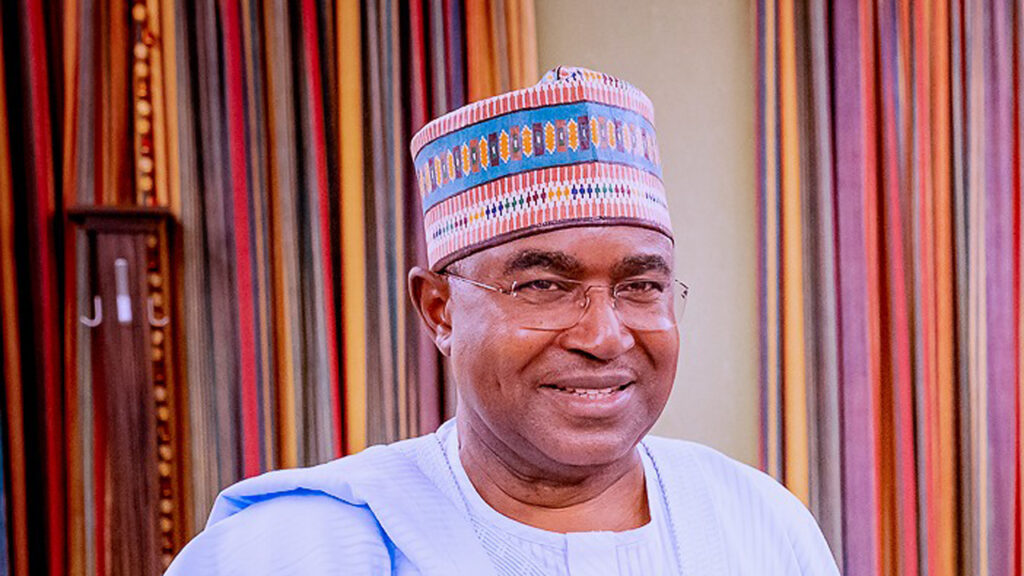
Violence has displaced hamlets to the safety of Udawa town, and recently, residents say, local Ansaru jihadists called for a boycott of next week’s election.
Vulnerable districts like Birnin Gwari, a local government area in Kaduna State, are testing Nigeria’s preparations for the February 25 vote in the face of Islamist jihadists, criminal gangs and separatist gunmen.
“Politicians have left us to our own fate. No one has come to us canvassing for votes,” Birnin Gwari resident Dahiru Yusuf told AFP.
“They failed in protecting us.”
Security is a key challenge for whoever wins the presidency of Africa’s most populous state, when President Muhammadu Buhari steps down after two terms.
When Buhari came to office in 2015, and after his re-election in 2019, the former military commander was seen as someone to take on jihadists controlling parts of the northeast.
Jihadists may have been pushed back from territory they held, but Nigeria’s insecurity has spread more than in 2019.
The tight, three-way race to succeed Buhari also risks enflaming tensions, analysts said, especially if the results are very close after a bitter campaign.
Security challenges “could disrupt the vote in many places, thus raising the risk of post-election protests that could degenerate,” International Crisis Group said in a report.
‘Silo’ voting
Despite warnings about violence, Independent National Electoral Commission (INEC) chairman Mahmood Yakubu says the election will go ahead as planned.
Security forces plan to deploy around 400,000 personnel for the presidential and parliamentary ballots.
But in the northwest, criminal gangs known locally as bandits with roots in communal conflicts, often operate with impunity in remote, rural areas, carrying out brazen attacks and mass abductions.
INEC says voting will not take place in 240 polling stations across the nation, mostly because insecurity means few registered to vote in those areas.
Yiaga Africa, which promotes good governance and rights, noted six states with 14 local government areas where insecurity risks limiting access for the election.
When southeast Anambra state held a governor’s election in 2021, 30,000 police and soldiers were deployed to counter the threat of attack by separatists.
Even with those reinforcements, voting in one district, Ihiala, was conducted days later to allow security to be concentrated in an area with more than 320 polling stations.
“The hard truth is that election will have to be held in silos,” Nigeria’s SBM Intelligence analyst Cheta Nwanze said, referring to isolated local ballots held at a different time in sensitive areas.
“Given the prevailing circumstances, they could very well be prominent in at least three of the six geopolitical zones.”
Repeated attacks
In the southeast, violence blamed on separatists from the Indigenous People of Biafra (IPOB) group has targeted INEC offices and police repeatedly. IPOB says its armed wing is not responsible.
INEC says there have been at least 50 attacks nationwide on its offices since 2019.
In December, gunmen attacked the main INEC office in Imo state capital Owerri, burning part of the building, in the third attack in two weeks.
“We are not sure if elections would hold or not. If government provides security, it could build some level of courage,” said Ihiala businessman Francis Obidiaso.
“People are hardly thinking about elections and voting right now.”
Political tensions
Since the country emerged from military rule in 1999, Nigeria’s elections have often been marred by political violence, deadly ethnic clashes, vote buying and logistical delays.
Most analysts see INEC as more prepared than before, especially with the introduction of biometric software to help prevent fraud and the electronic transfer of results.
But officials have warned that recent fuel shortages and cash scarcities after a bank note exchange plan may impact logistics and the transport of election staff and materials.
Rioting has already erupted in several states as frustrations grow over the naira note shortages.
Beyond armed groups, political attacks have also been on the rise, with double the number of violent incidents against officials compared with the monthly average last year, according to ACLED, which collects conflict data.
In a tight race with contested results — some analysts eye the possibility of an unprecedented second round run-off — tensions can easily spill into violence.
“With each front-runner drawing support –- strongly but not exclusively –- from his ethnic, religious and regional bases, the campaigns are stirring up communal tensions that could turn ugly,” Crisis Group said.












